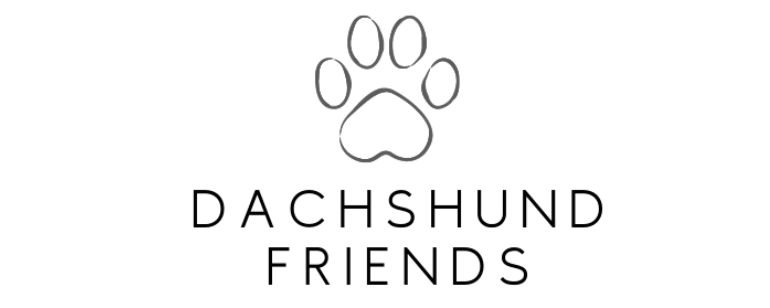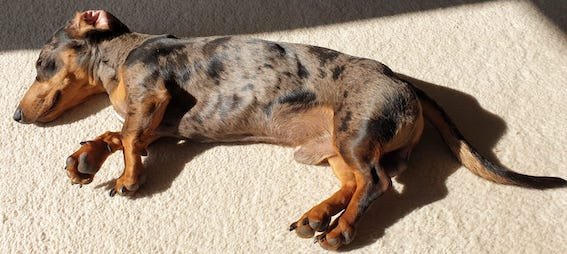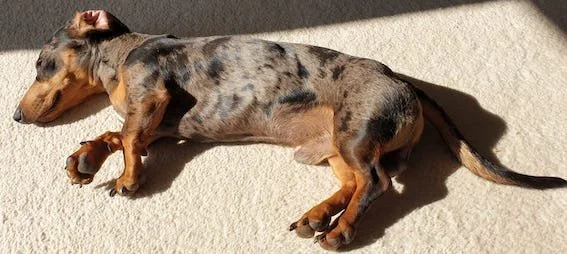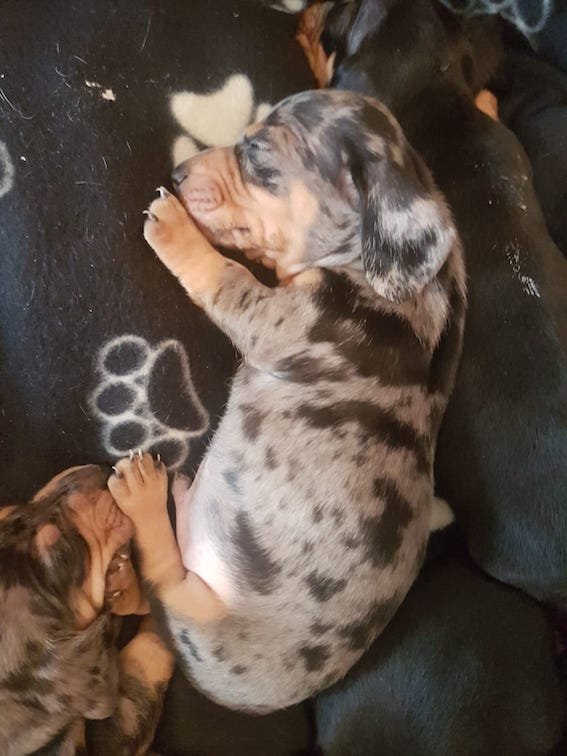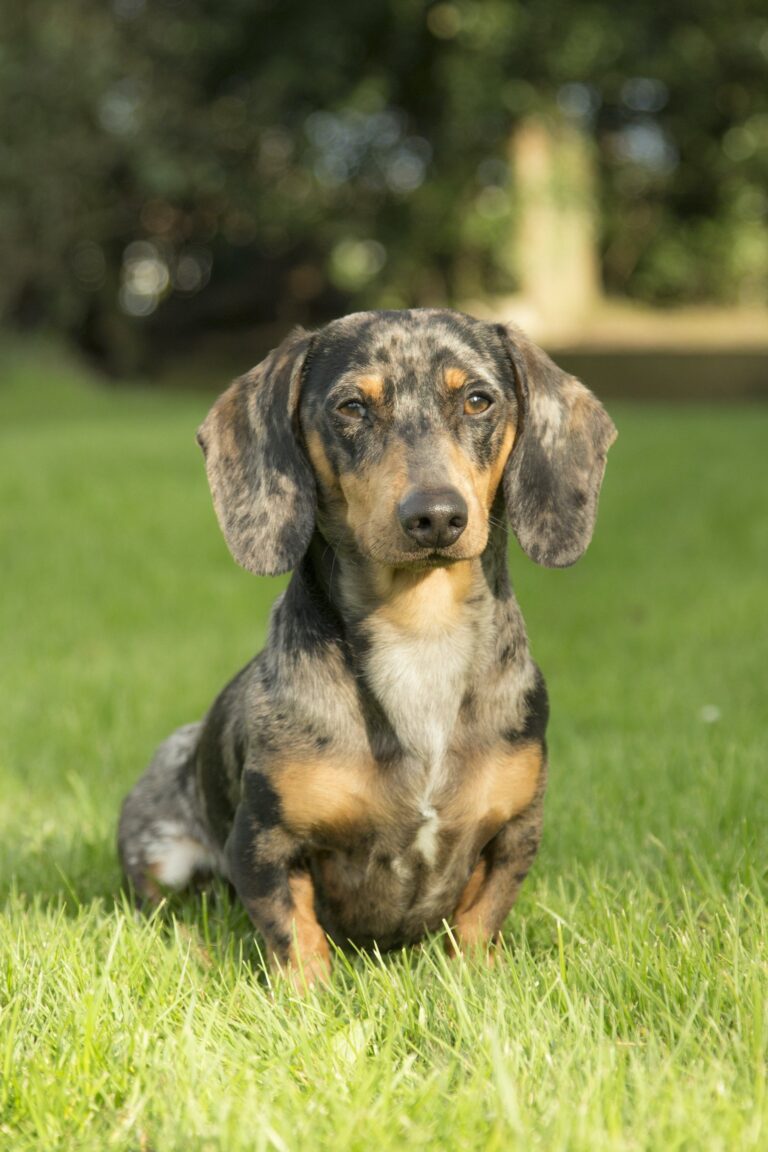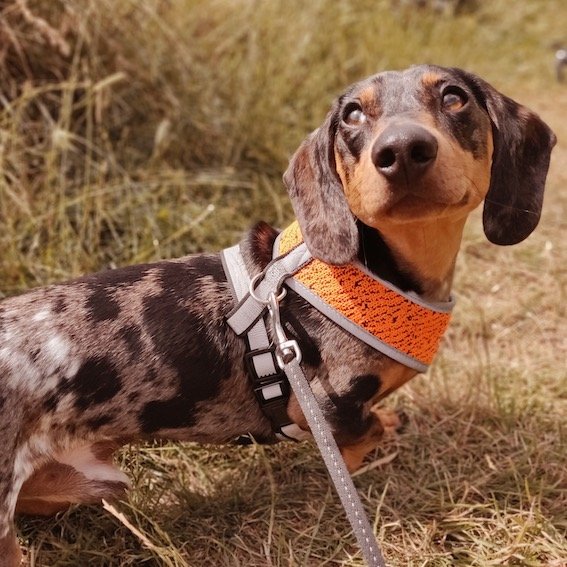How To Deal With Separation Anxiety In Dachshunds
One of the challenges we faced when our dachshund was a puppy was separation anxiety. Any time he was left alone – even for just a few minutes – he’d cry, howl and screech like he was being abandoned. Inside his puppy pen he’d stress‑poop (and sometimes even eat it!!). For the sake of our neighbours (and because our guilt heard every squeak) we had to tackle it sooner rather than later.
Separation anxiety in dogs is when your dog shows distress, agitation or depression when left on their own. This is usually displayed through disruptive, upsetting or destructive behaviour.
Signs of separation anxiety in dachshunds
Dachshunds aren’t immune to separation anxiety, and ours showed it in a few unmistakable ways that made it clear something wasn’t right.
- Excessive barking and howling – This was the biggest one for us. The moment we stepped out, our dachshund would start barking, whining, and screeching in this high‑pitched tone that honestly sounded like he was being tortured. It wasn’t a bark out of boredom or alertness, it was a panicked, distressed sound that didn’t stop until we came back. If your dog does something similar, it’s usually a clear sign they’re feeling overwhelmed by being left alone.
-
Destructive behaviour – Some dogs cope by chewing or destroying things, and dachshunds are no exception. If your dog starts tearing up cushions, bedding, toys or even trying to chew through doors or crates, that could be anxiety. This isn’t the same as chewing out of puppy curiosity, it’s more frantic and focused. It’s a way for them to try and relieve their stress or even attempt to escape.
- Accidents indoors – Even if your dachshund is fully toilet trained, you might start finding little “surprises” left in the house when they’re left alone. We noticed stress poops happening inside his pen (sometimes even eaten, which was a whole separate problem!). Anxiety can disrupt their normal routine and make them lose control, especially in young dogs.
-
Pacing or restlessness – Some dachshunds may pace back and forth near doors or windows after you leave, looking for a way to get to you. Others may keep jumping up at the door or scratch at it constantly.
-
Drooling, panting, or trembling – Physical symptoms are also common. Some dogs drool excessively, pant heavily or tremble when they feel overwhelmed. These can sometimes be mistaken for signs of overheating or illness but are also often linked to emotional stress.
-
Trying to escape – In more severe cases, dogs may try to escape crates or rooms by scratching or biting at doors, or even injuring themselves in the process. This is often a last-resort behaviour when the anxiety becomes too much for them to handle.
These are all classic signs of separation anxiety and often appear together rather than on their own. It’s important to rule out other causes too: for example, chewing or accidents might also happen if your dog is bored or not exercised enough. But if the behaviour only happens when your dachshund is left alone, or starts right after you leave, then separation anxiety is likely the root cause.
Causes of separation anxiety in dachshunds
Every dachshund is different, but based on our experience and what we’ve learned from other owners, there are a few common causes of separation anxiety. These can show up during puppyhood or develop later depending on life changes or your dog’s personality.
1. Over-attachment or lack of socialisation
Dachshunds are incredibly loyal and tend to form strong attachments to their main person. Our dachshund would follow us from room to room and never want to be apart. This kind of bond can be sweet, but if your dog never learns how to be independent or spend time alone, it can lead to anxiety when you’re not there. Puppies that haven’t been exposed to different people, places, and short periods of alone time are especially vulnerable to this.
A well-socialised dog is usually more adaptable. Without that early exposure, even short absences can feel overwhelming to a dachshund, making them react with panic behaviours like barking or destructive chewing.
2. Changes in routine or environment
We also noticed that changes to our routine would often trigger anxiety, even after our dachshund had made good progress. A good example was when he stayed with my parents. Although he knew them and their home, it wasn’t his usual space. The first time we left him there on his own, he reacted just like he had as a puppy: howling, pacing, and generally not coping well!
Changes in schedule, house moves, returning to work after being home a lot, or even small things like a change in where your dog sleeps can all cause stress. Dachshunds thrive on consistency, so even seemingly minor changes can unsettle them.
3. Past stressful experiences
In some cases, separation anxiety may be linked to a past traumatic experience. This could be something like being left alone for too long during a key development period, being rehomed, or experiencing neglect or fear while alone. These kinds of associations can stick with a dog and resurface later when they’re left alone again.
Even if your dog has had a fairly stable upbringing, a sudden, negative experience during a time of separation (like a loud noise or thunderstorm) can leave a lasting impact and make them feel unsafe when left alone again in future.
Tried-and-Tested Tips (That Worked for Us)
1. Gradual desensitisation and rewards
This was the most effective strategy we used. We started by leaving the room for just a few seconds, then coming back in before our dachshund had time to get anxious. Once he was comfortable with that, we slowly increased the time we were away. This helped him learn that being alone wasn’t something to fear, and that we would always come back.
To help him stay calm, we gave him a treat each time we left. He quickly began to associate our departures with something positive. Over time, this became part of his routine. Now, when he sees us getting ready to go out, he waits patiently for his treat and then settles into his usual spot without any fuss.
Some behaviour experts and other dachshund owners recommend creating a predictable routine around leaving. Giving your dog something to focus on, like a frozen peanut butter Kong, and keeping your return low-key can help reduce anxiety. This method of pairing short absences with positive distractions and gradually building up the time apart made a huge difference for us.
2. Create a comfy, safe area
From day one, we focused on making our dachshund feel secure at home. We introduced a crate right away, not to lock him in, but to give him his own little space. We left it open all day and filled it with a warm bed, soft blankets, and a few of his favourite toys.
Eventually, he started going there on his own when he wanted to nap or relax. By the time we were working on leaving him alone, he already saw the crate as a safe, familiar place to retreat to.
To keep him occupied while we were out, we used tried various treats and distractions such as peanut butter-stuffed Kongs (just make sure the peanut butter is xylitol-free and has no additives). These small distractions made the alone time feel less stressful and more engaging.
3. Tire them out before leaving
A well-exercised dachshund is usually a more relaxed dachshund. Before leaving the house, we made sure to take our dog for a decent walk. It’s also important to not just focus on physical activity but to let your dog sniff around as much as they want. That mental stimulation is just as important as the exercise and helps take the edge off any energy.
After a walk and a bit of play, we found that our dog was much more likely to settle and nap rather than get worked up when we left.
4. Keep departures and returns low-key
This one took a bit of effort because the natural instinct is to reassure your dog with lots of fuss when you’re coming or going. But we learned that this actually made things worse. The more emotional the goodbye, the more dramatic the reaction.
So we started ignoring him in the minutes before we left, then quietly walked out. When we returned, we waited a minute or so before giving him attention. That helped take the emotional charge out of leaving and coming home, and it also taught him that our comings and goings weren’t a big deal.
5. Use soothing tools
In addition to training, there are a number of calming tools that can help reduce a dachshund’s separation anxiety. These work best when used alongside a consistent routine and gradual desensitisation. Not every dog responds the same way, so it may take some trial and error to find what works best.
-
Frozen Kongs or food-stuffed toys: These can provide a distraction and help create a positive association with being alone. You can fill them with natural peanut butter (free from xylitol), wet food, or mashed banana and freeze them to make them last longer.
-
Puzzle toys and lick mats: These encourage mental stimulation and help keep the dog focused while you’re away. Engaging their brain can reduce stress and prevent boredom-related behaviours.
-
Pheromone collars and diffusers: These release synthetic versions of calming dog pheromones, similar to those a mother dog produces. Some owners report a noticeable calming effect, though results can vary.
-
Calming music or white noise: Playing gentle background sounds can help drown out external noises like traffic, neighbours, or sudden bangs. Music specifically designed for dogs is available, or you can test simple ambient noise playlists to see what your dog responds to.
These tools won’t “fix” separation anxiety on their own, but they can be helpful additions to a well-rounded approach. It’s worth experimenting with different options to see which ones your dachshund responds to most positively.
6. When to get professional help
If your dog is still struggling after consistent training, or if the anxiety is severe, it may be time to speak with a vet or a qualified dog behaviourist. Signs of more serious anxiety can include self-injury, destruction around the home, or repeated attempts to escape when left alone.
In some situations, a professional may recommend medication to help support the training process. This could include anti-anxiety medications such as SSRIs, calming supplements, or other treatments prescribed by a vet. While medication is not the first step for most dogs, it can be a helpful option in cases where the anxiety is significantly impacting your dog’s well-being.
FAQ
How much time should the initial sessions be?
Start with just a few seconds and observe your dog’s reaction. If they stay calm, you can gradually increase the time. If they become anxious, scale it back and try again later. The aim is to build confidence slowly and always end on a positive note.
Is crate training cruel?
When introduced properly, crate training is not cruel. A crate can become a safe, comforting space where your dog feels secure. It should always be a positive place with soft bedding, toys, and open access—not used as punishment or confinement.
What if my dog damages things near the door when left alone?
Try setting up a smaller, more secure area where your dog feels comfortable. You can also use baby gates or playpens to create boundaries. Provide enrichment like a frozen Kong or puzzle toy to keep them occupied and distracted from the door.
Does medication help with separation anxiety?
Medication can help in more serious cases of anxiety, especially when used alongside consistent training. A vet may prescribe anti-anxiety medication, calming supplements, or pheromone products depending on your dog’s needs. It’s not usually the first step but can be a helpful option if the anxiety is significantly affecting your dog’s wellbeing.
What can I do if I’m away for long hours?
If you’re out of the house for extended periods, consider a dog walker, pet sitter, or doggy daycare to break up your dog’s day. Some dogs benefit from having another dog around for company, though this isn’t a guaranteed solution for every pet. The key is to reduce long stretches of alone time and offer consistency and reassurance when you are home.
Helping Your Dachshund Feel Safe When You’re Away
Separation anxiety can be a frustrating and emotional challenge, but with a bit of patience and the right strategies, it’s something that can be managed. The key is to take things slowly and build your dog’s confidence through positive experiences. Whether you’re working on short absences, creating a calm environment, or using tools like puzzle toys and pheromone diffusers, small changes can make a big difference over time.
If things don’t improve or your dog’s anxiety feels overwhelming, there’s no harm in reaching out for extra support. A qualified behaviourist or vet can help guide you through the next steps. Most importantly, remember that you’re not alone in this. Many dachshund owners go through the same thing, and with consistency and care, your dog can learn to feel safe and settled when you’re not around.
